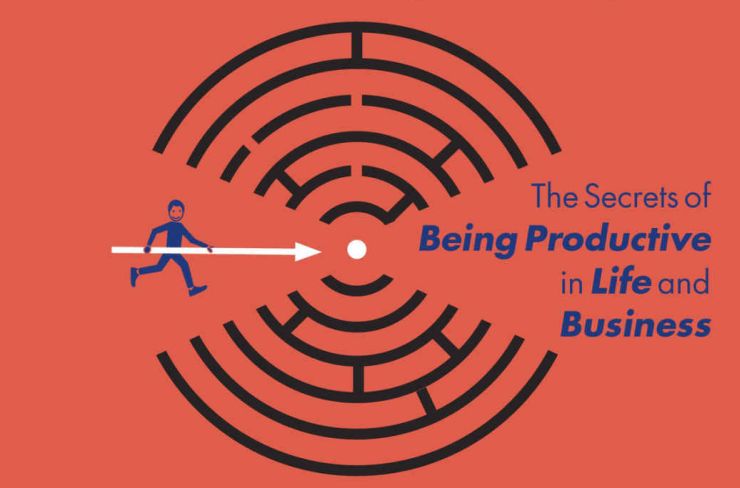Charles Duhigg was feeling unproductive. It was 2014. His book, The Power of Habit, had just come out and was a bestseller.

“I felt like I should’ve been on top of the world with things going unexpectedly well, and I felt sort of the opposite,” he said.
“Every night I’d come home and there would be 150 emails waiting for me. I constantly felt like no matter how hard I was running, I was constantly falling behind.”
“And when I looked around it seemed like there were other people who were getting as much done or more — with less stress… and fewer sacrifices.”
He had fallen into “the busy trap.” Anyone who’s ever complained of how “crazy busy” their life is to friends or family (whom there’s seemingly no time for) is guilty of it.
Being busy doesn’t mean you’re productive
This wasn’t supposed to be a bad thing: Our brains evolved to crave busyness, Duhigg says.
Thousands of years ago, if you were able to look out for predators and plant crops, you had a better chance of survival. Now, he says, “busyness has become a negative.”
Duhigg’s new book Smarter Faster Better: The Secrets of Being Productive in Life and Business argues that working harder, making more sacrifices and spending more time at work is an outdated formula for success.
He wants to help people succeed with less effort by working “smarter.”
Oftentimes, he says, the things that may seem most efficient can undermine our productivity.
READ MORE: Unproductive at work? It could be your manager’s fault, author says
Breaking the rules can be a good thing
One of the biggest productivity-killers, Duhigg says, is when you feel you’ve no control over a situation. That can easily lead to complacency.
Breaking the rules can help in some cases (although you may want to pick and choose carefully when and where you do it).
A series of studies on U.S. nursing homes in the 1990s examined why some seniors thrived inside such facilities, while others experienced “rapid physical and mental declines.”
There was one big difference between the two groups. The thriving seniors “rebelled against the rigid schedules, set menus, and strict rules that the nursing homes tried to force upon them.”
They would move furniture around in their rooms without permission, sometimes using crowbars to pry dressers free from the walls.
When an administrator told the insubordinate seniors that staff could help them re-arrange their furniture, they said “they didn’t want any assistance, didn’t need permission, and intended to do whatever they damn well pleased,” Duhigg wrote.
Their small acts of rebellion made them feel in control of their lives. That made them happier, more intellectually engaged and more active. They were even found to live longer — despite having just as many health problems as the rule-followers.
Marines are being trained to break the rules on purpose, Duhigg’s book says.
They’re assigned a task with rules that, if followed, would make the task impossible.
The goal is to make them break the rules and feel more empowered to make independent decisions.
“We’re trying to teach them that you can’t just obey orders,” a drill sergeant is quoted as saying in Duhigg’s book.
“You have to take control and figure things out for yourself.”
To-do lists may be holding you back
Take note: Your to-do list could be hurting your productivity.
“If you look at the to-do list of highly successful and highly productive people, they tend to be a little different from everyone else’s to-do lists,” Duhigg said.
Many people have a list of things they want to do. Some will even add completed tasks to the top to make themselves feel better.
Duhigg recommends you should start off with the biggest, loftiest goal you want to accomplish in a given time frame — it could be a week, month or even year.
READ MORE: ‘The Productivity Project’ explores how to maximize your time and energy
Break that goal down into steps you’ll need to complete to achieve the goal, and estimate how long each step will take.
Making the list shouldn’t take more than five minutes but can help sharpen your focus, Duhigg said.
“The first step,” he said, “oftentimes is the hardest.”


Comments